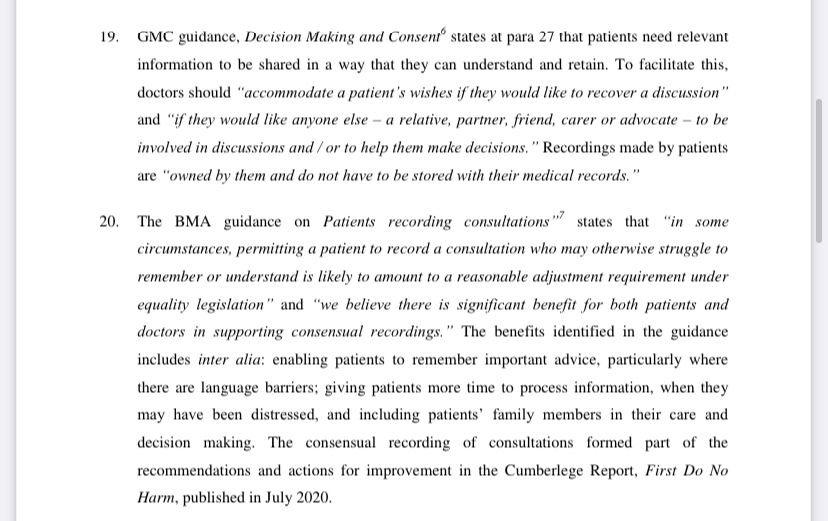"My doctor says I can't record my appointment"
- erinbetterbirth

- Oct 15, 2022
- 3 min read
What do you do if your consultant or midwife won't let you record your appointment? Yesterday morning I had messages from a client who was sat in her consultant's office ready for a discussion on whether they'd advise a home birth or not. Because of the likelihood of a difficult conversation, and because her birth partner wasn't with he, I advised she record the appointment. Cue her doctor getting in a flap, saying it's not trust policy, and disappearing off to go find out from someone else if it was allowed. In the end she got to record it, but what do you do if you're given an outright no?
First off, why would you want to record your appointments? There are several reasons you may want to record your appointment with your midwife or doctor:
if you have problems remembering information
if your birth partner isn’t with you and you want to play the recording to them
if you’d like to review the advice later
it may prevent coercion and lack of empathetic care and negative language
it may aid in lodging a complaint if you’re given jncorrect or coercive information
It's important to go prepared with the knowledge that legally you CAN record your medical appointments. But the knowledge alone may not be sufficient to persuade a medical professional... so let's look at some of the reasons you may be given, and what the British Medical Association, General Medical Council & NICE guidelines say…

IT’S NOT A breach of privacy or data protection
The British Medical Association states that recording a consultation, either with or without the medical professional's consent, is not a breach of privacy, and is legal under the data protection act as it's exempt. As a courtesy you may want to inform your doctor or midwife beforehand that you plan to record the conversation, and this is good manners, but you are not legally obliged to do so.
Information disclosed during a consultation is confidential to the patient, and a covert recording is not therefore a breach of confidentiality.
Similarly, where a recording is made entirely for personal reasons it is unlikely to engage the Data Protection Act.
The cannot refuse to continue with your appointment
Your doctor or midwife may refuse to continue with your appointment if you insist on recording the conversation. If they refuse to continue, you're within your rights to ask for them to find someone else who can carry out the appointment and IS happy to be on the record. The British Medical Association states the following:
You should tell the patient and sensitively explain your reasons. If the patient insists, it is important to remember that you still owe them a duty of care. Medical defence bodies advise doctors not to refuse to continue with the consultation.
In our view, doctors should not refuse to continue with the consultation unless the patient can be seen in a safe and timely fashion by another colleague who is willing to agree to the recording.
You have the right to share information with your birth partner and family
If your birth partner is not at your appointment
If your birth partner is not with you at your appointment, is reasonable to request to record the appointment for them to listen to later. 40-80% of information is forgotten after an appointment according to some studies, and it can be difficult to relay information to someone else if multiple topics have been covered, with lots of medical terminology and statistics. NICE Quality Statements say:
People using adult NHS services have their preferences for sharing information with their family members and carers established, respected and reviewed throughout their care.
In addition to this, NICE guidelines also specifically state:
Both the British Medical Association, and the General Medical Council have statements regarding recording appointments.
If you’re having difficulty working with your care provider, you can contact Birthrights, who provide free advice. You can also book a consultation with Emma Ashworth, Author of the AIMS UK guide Your Rights in Pregnancy & Birth and Co-author of the AIMS UK guide Safety in Childbirth, who will be able to provide advice and support.
References:








Comments